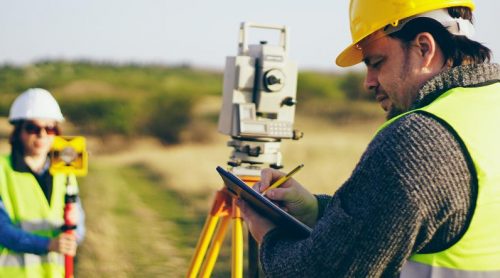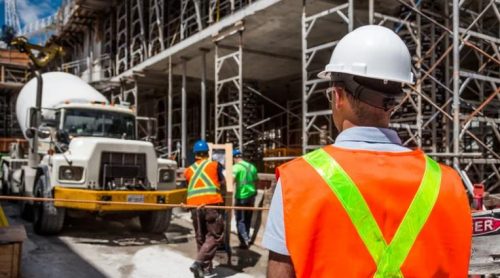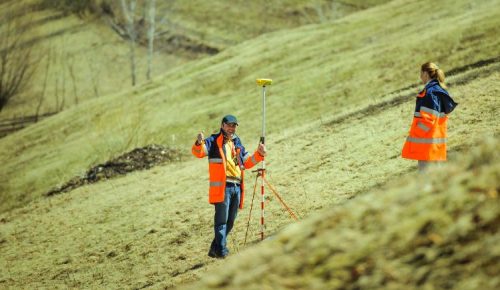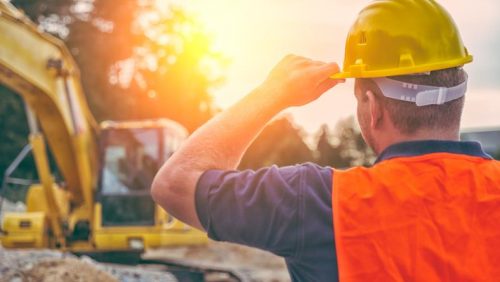Table of Contents
Every developer should understand the state of the land or property they are developing in addition to how the development will affect the environment. This information is crucial for developers to have so they can do everything they can to reduce the development’s impact on the environment. More importantly, it is important for planning applications that require developers to complete different surveys before they start developing. Developers can complete different types of surveys before starting their developments, and we will be looking at the most important ones below.
5 Key Environmental Checks Every Property Developer Should Make
1. Ecological Surveys
An ecological survey assesses a proposed development to understand the impact it will have on the environment. Ecological surveys are just one of the surveys developers need to complete in addition to completing cost estimates, structural warranty checks, getting insurance and getting planning permission. A new development in this context refers to a residential build, an addition to existing structures or the development of a commercial site.
The ecological surveyor assesses every part of the development site, identifying any considerations, issues or problems that they need to take into account during this process.
 An ecological survey is also a critical tool for helping developers understand what they need to do to reduce their impact and to put a plan in place to achieve this aim.
An ecological survey is also a critical tool for helping developers understand what they need to do to reduce their impact and to put a plan in place to achieve this aim.
You will always need an ecological survey if a habitat or ecosystem for protected species exists on the proposed development site. Some of the atypical habitats include meadows, pasture and parkland, coastal habitats, abandoned buildings, lakes and other bodies of water, heathland and both urban and suburban gardens.
Ecological surveys are conducted early in the property development planning phase whether there is evidence of protected species and habitats or not.
2. Animal Surveys
Animal surveys technically fall under ecological and biodiversity surveys, but they are such a broad area that they warrant their discussion. Animal surveys are conducted to find out the existence of protected animal species on a development site. These surveys are also conducted to find out if these animals’ habitats exist.
These surveys are mandated by law because different animals are protected by legislation, with their displacement or harm punishable under the law. Because of these animals’ protected status, a developer has to initiate an animal survey and then get a report that outlines a mitigation plan to reduce the impact a development will have on these protected species. The mitigation plan might also outline how to compensate for adverse effects on these species.
 Some of the protected species include bats, newts, water voles, wild birds, certain reptiles, badgers, and many others. Because these animals and their habitats are different and are affected by development projects differently, you need to bring experts in animal surveys who are experienced in different survey methods and strategies for different animals.
Some of the protected species include bats, newts, water voles, wild birds, certain reptiles, badgers, and many others. Because these animals and their habitats are different and are affected by development projects differently, you need to bring experts in animal surveys who are experienced in different survey methods and strategies for different animals.
All you need to start a badger survey, or the survey of any other protected species, is to call a professional, provide them with some details and let them complete the survey. The experts in animal surveys will then present a report that tells you of the next steps to take, with some of them even helping you get planning permission after concluding the survey.
3. Contaminated Land Surveys
A contaminated land survey is conducted to find out if the property to be developed does not present an unacceptable working risks to employees and health risk to occupiers, other users and especially the development team that would likely be the first to be affected if the land is contaminated.
These surveys are typically done at the start of a development project, but buyers and sellers can also commission them if there is suspected prior industrial use or waste disposal disputes.
 Buyers who suspect this should hire a company doing this type of environmental survey to ensure they do not end up with land that presents environmental liabilities in the future.
Buyers who suspect this should hire a company doing this type of environmental survey to ensure they do not end up with land that presents environmental liabilities in the future.
Many local authorities have long lists of specific requirements to meet that can result in a lot of excess work and project delays. Instead of going through this, get a company that has experience doing this so they can not only speed up the process, but ensure you meet all requirements so that you do not have any issues with your planning permission.
4. Noise Surveys
Noise surveys apply to any developments that include human occupancy. If you intend to develop property near sources of noise such as a trail station, industrial plant or traffic, you need a residential noise survey to support your planning application.
The noise survey measures the baseline noise level at the development site as well as the source of the noise. Once the survey is complete, the experts start creating reports that detail how that level of noise could affect residents of the proposed development.
 It entails not only whether the development will allow for acceptable noise levels, but also the likely noise thresholds in the living rooms, bedrooms, garden room and external areas. The generated technical noise survey report will include advice on layouts and orientation that will help the developers achieve the desired acoustic levels.
It entails not only whether the development will allow for acceptable noise levels, but also the likely noise thresholds in the living rooms, bedrooms, garden room and external areas. The generated technical noise survey report will include advice on layouts and orientation that will help the developers achieve the desired acoustic levels.
5. Soil Surveys
Although soil analysis is done when doing contamination surveys, that is not the aim of soil surveys. Soil surveys are non-intrusive processes meant to identify the composition of soil in a given piece of land. Understanding the type of soil and its composition in a given area is crucial for civil and structural engineers who will be involved in the actual development.
Small pits are used for the initial identification and sophisticated instruments are used to collect soil from depths of up to 1.2 metres. These deeper digs are crucial for understanding the complete soil profile on a given site.
 These soil samples are taken to the lab for analysis. In addition to helping developers understand the soil profile beneath their feet, these surveys are crucial if the property owner ever decides to return the land to forestry, habitat creation, agriculture or landscape planning uses. The collected soil samples will be a crucial guide on how to do that.
These soil samples are taken to the lab for analysis. In addition to helping developers understand the soil profile beneath their feet, these surveys are crucial if the property owner ever decides to return the land to forestry, habitat creation, agriculture or landscape planning uses. The collected soil samples will be a crucial guide on how to do that.
While physical surveys are crucial before development projects commence, developers have to conduct additional surveys to have an even better understanding of the property. Many of these surveys are crucial for getting planning application approval.






































